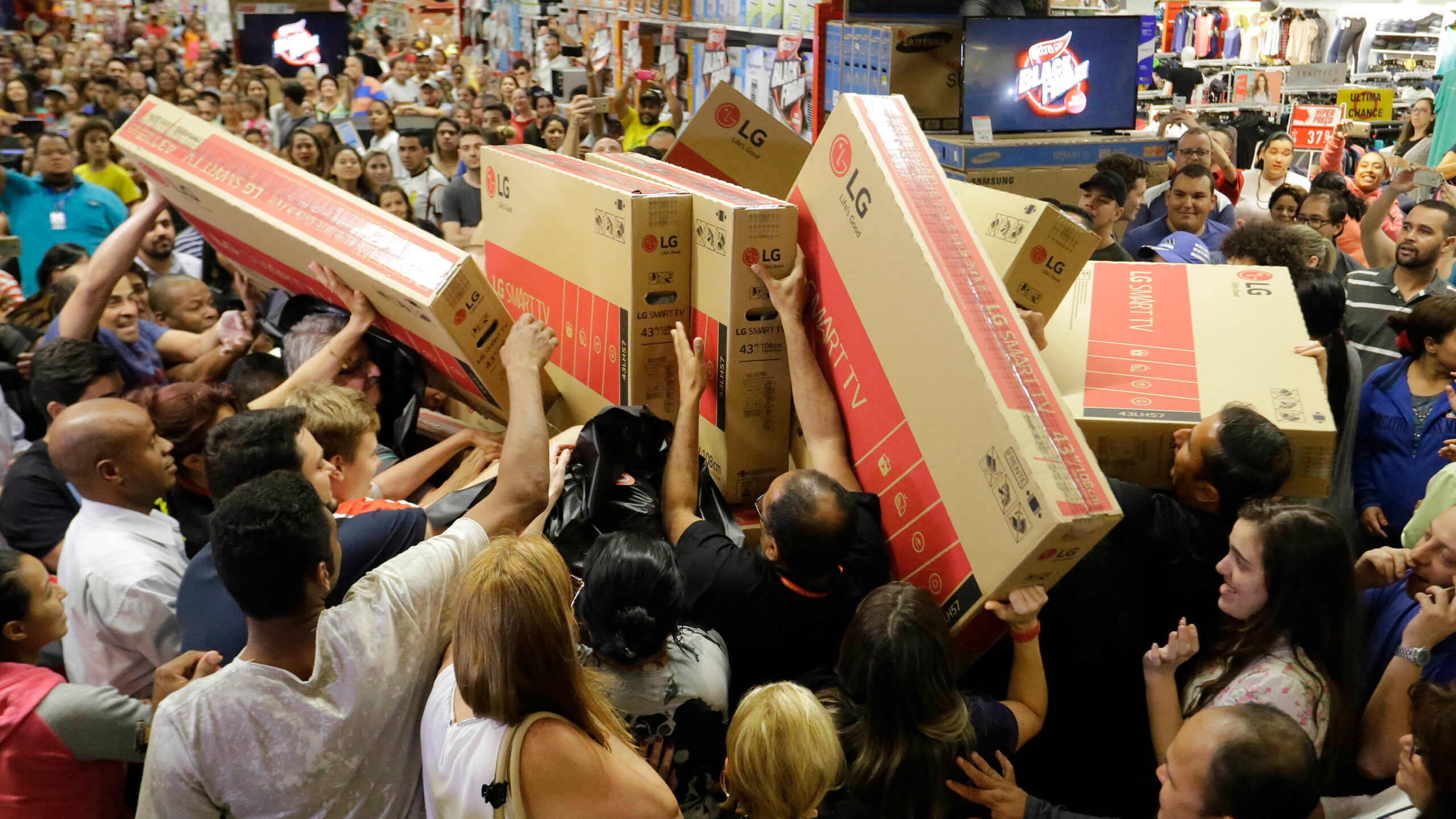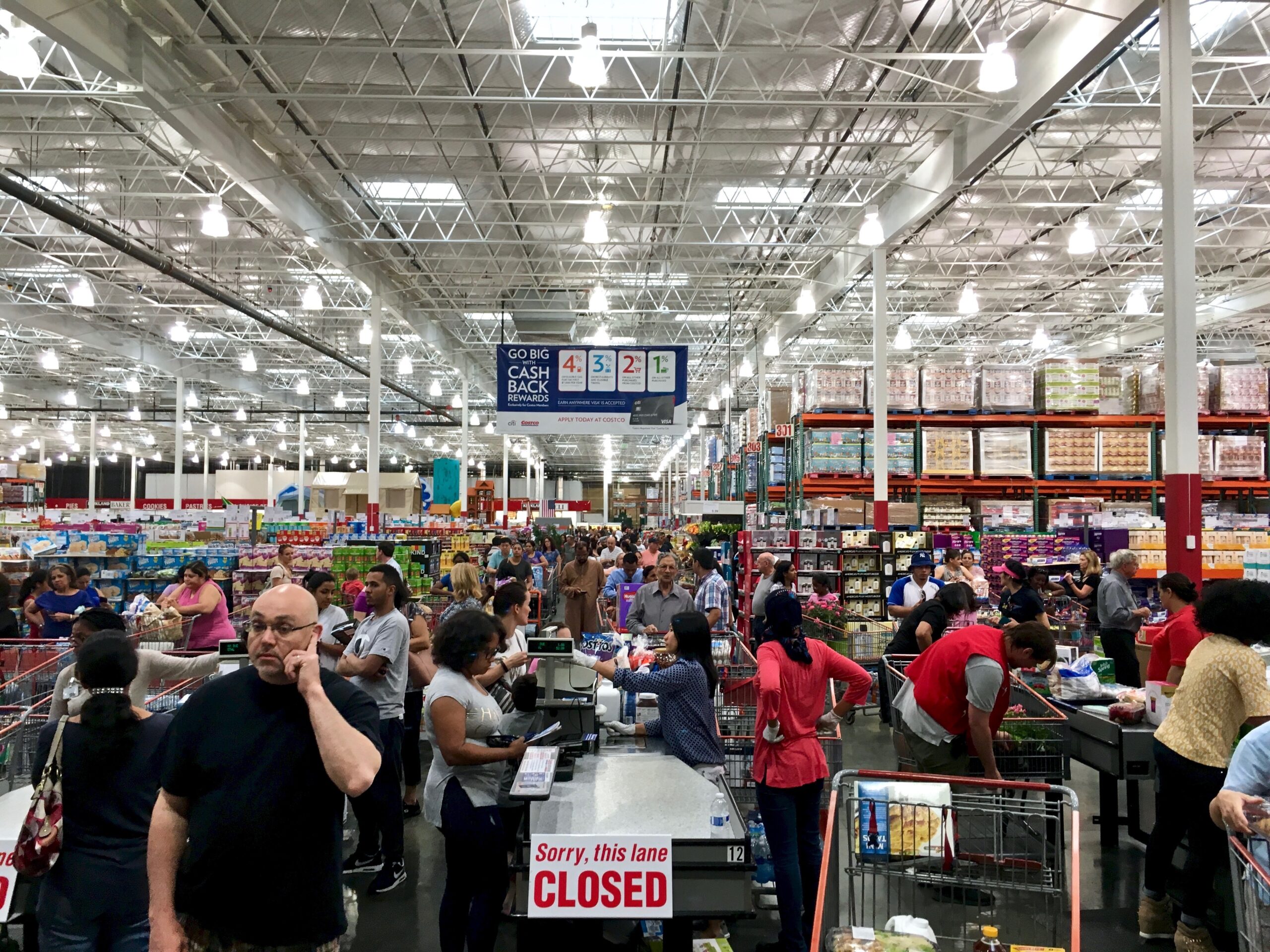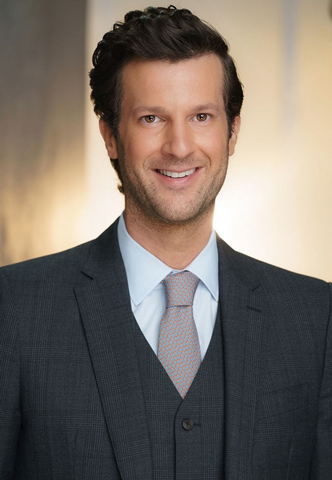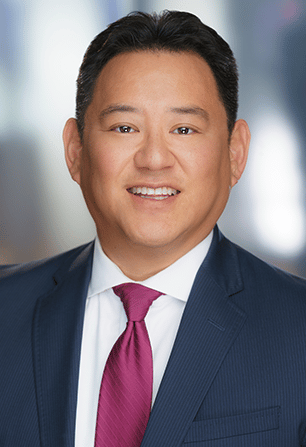Estimated reading time: 6 minutes
While Black Friday may be infamous for its deals, the holiday has also become synonymous with violence in recent years. These days, stories of shoppers stampeding through malls and deadly disputes between consumers flood the news alongside websites solely dedicated to reporting deaths and injuries that occur on Black Friday.
If you’re injured while shopping on Black Friday, understanding your legal options is crucial. Pursuing a personal injury case against a property owner could help you obtain compensation and get back on your feet. Today, we’re offering some insight into premises liability and Black Friday, as well as tips on how you can stay safe and avoid injuries altogether.
Are Stores Liable for Black Friday Injuries?
They can be. In 2008, a mob of over 2,000 shoppers outside of a Walmart in Valley Stream, N.Y. broke down the doors and stampeded in, resulting in the death of a temporary employee. The family of the victim filed a lawsuit against Walmart that resulted in a $1.5 million settlement. The Occupational Safety and Health Administration (OSHA) also imposed a $7,000 fine on the organization – which Walmart unsuccessfully spent over $2 million attempting to overturn.

Black Friday Injury Liability Laws in California
In California, shoppers are considered “invitees” when legally on the premises of a store. That means property owners have a duty of care to ensure that shoppers are safe from hazards and/or injuries, and are made aware of potential safety hazards on the premise. Many shoppers assume it’s difficult or impossible to hold property owners liable for injuries suffered on Black Friday, but that’s not necessarily the case.
OSHA recommends that stores take the following precautions (among others) on Black Friday to avoid premises liability suits:
- Hire additional staff, including security, to ensure that crowds are properly managed;
- Train employees to handle large crowds, and closely monitor areas where people gather, such as aisles and cash registers;
- Ask local police and fire agencies to verify the store meets public safety requirements and has the appropriate licenses;
- Have an emergency plan in place if violence breaks out or an injury occurs;
- Set up barricades, rope lines, and other measures in and outside the store to ensure shoppers don’t crowd each other;
- Provide highly visible signage for entrances, exits, bathrooms, and any hazards the property owners are aware of around the store;
- Have extra signage available so employees can quickly make shoppers aware of potential hazards that develop throughout the day, such as spills;
- Have an employee ready to contact local emergency responders if necessary.
If a property owner fails to take the proper precautions to ensure your safety and you get injured as a result, they may be liable for your injuries. To hold a property owner liable in a premises liability suit, you must prove that:
- The alleged property owner does indeed own, lease, or control the property;
- The property owner acted negligently with regards to the property’s maintenance or use; and
- The property owner’s negligence was a substantial factor in your injury.
Proving a property owner’s liability can enable you to obtain compensation for your injuries.
What Compensation Can I Get in A Premises Liability Suit?
If you prove a property owner’s negligence led to your injury, you could receive compensations in the form of damages for:
- Medical bills and costs associated with the injury, including physical therapy and continuing medical care;
- Wages lost due to the accident, including lost future income;
- Pain and suffering caused by trauma stemming from the injury.
It’s important to note that, as of 2021, California utilizes pure comparative negligence rules when determining how much to award parties in personal injury suits.
Under comparative negligence rules, the party liable for the injury compensates the injured party for their percentage of fault. In other words, the more negligent a property owner is, the more they have to pay the injured party.
For example, let’s say you have your earbuds in and are slightly distracted. You slip and fall on a spill in a store that has no warning sign around it, with no employees nearby to warn shoppers. You could obtain compensation by filing a premises liability suit against the property owner. However, suppose the court determines that your own negligence (not paying attention to where you walked) contributed to the injury. In that case, you may receive less compensation, since the property owner is not solely at fault.

Types of Evidence in Premises Liability Lawsuits
Common forms of evidence in premises liability lawsuits include:
- Witness statements. Many Black Friday injuries involve other shoppers or crowds of people. Having others who were on the premises and can attest the property owner acted negligently can help support your case.
- Media evidence. Media evidence could include photographs showing the area of the injury or unsafe practices on the premises, videos, or footage from sources such as security cameras. In most premises liability cases, media evidence plays a crucial role.
- Accident reports. If you reported the injury to the property owner or an emergency responder documented the occurrence with an accident report, it could help prove that you were legally an invitee on the property when the accident occurred.
- Medical statements, bills and records. You’ll want to obtain compensation for any medical care associated with your injury, and having meticulously documented records such as bills and doctor statements can help you achieve that goal.
- Pay stubs and employment records. You can use employment records, such as information about benefits and pay stubs, to obtain compensation for past, current, and future lost income due to the injury.
Consult an attorney before filing a premises liability suit against a property owner. An experienced personal injury lawyer can help you identify and gather evidence admissible in a court of law, enabling you to obtain the compensation you deserve more easily.
How To Stay Safe on Black Friday
Of course, ideally, your Black Friday involves lots of sweet deals and no injuries to speak of. Let’s discuss how you can stay safe.
Avoid crowds when possible. Every year, crowd surges and stampedes result in injuries on Black Friday, so keeping away from crowds can help you stay safe. Be particularly mindful of gatherings at chokepoints, such as store entrances and cash registers. With the COVID-19 Delta Variant surging again in parts of the U.S., taking precautions such as wearing a mask, practicing social distancing, and utilizing hand sanitizer frequently are all advisable.
Be aware of your surroundings. Try to keep your phone or other similar devices put away in a pocket or bag, and don’t wear restrictive clothing or devices such as earbuds that can make you less aware. You’ll avoid accidents more easily if you can move comfortably and take in your surroundings, and reduce your chances of theft by keeping valuables away from prying eyes and hands.
Avoid verbal or physical confrontations. Every year, there are Black Friday stories about shoppers losing their lives or getting injured in fights with other consumers. You never know how far someone else is willing to take a disagreement or if another person has a weapon, so try and minimize conflict wherever possible.
At Wilshire Law Firm, PLC, our team is dedicated to helping those harmed in premises liability and other personal injury accidents receive the care and counsel they deserve. Contact us online or give us a call at (800) 501-3011 to learn more about how we can help you.











